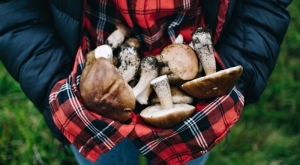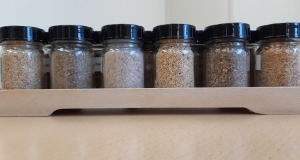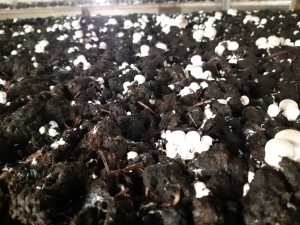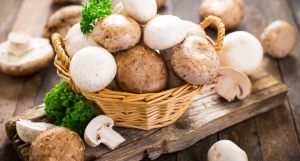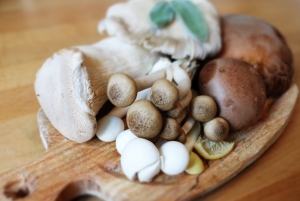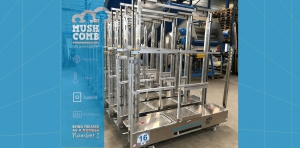The global mushroom cultivation market will grow enormously in the coming years. This is evident from the report of QYResourch. They have mapped the market analysis and insights for the global mushroom cultivation market for a period up to 2027. That is a good prospect for the growers of white mushrooms, oysters and shiitake. But growers of other mushrooms will also benefit from this. The analysis focuses on sales, revenue and forecast. The research process involves the study of various factors affecting the industry, including government, policy, market environment, historical data, current trends, technological innovation, risks, opportunities, barriers and challenges. The market estimates in this report are based on the market price of mushroom cultivation. Figures have also been identified through primary and secondary research at mushroom companies. Primary research included interviews with key opinion leaders or industry experts as well as with directors and marketing executives, while secondary research consisted of examining annual and financial reports. All possible factors influencing the markets included in this study have been taken into account, such as inflation, economic downturn and changes in regulations and policies or other factors. But if we can start from these predictions, growers worldwide have a bright future.
To request the full report, please click here.
Source: QYresearch
Supplement, the unknown ingredient?
If a consultant is visiting a farm there are always many things to discuss in detail.
Shall we give more or less water and are we able to water over the mushrooms?
Do we need a slower or faster fructification?
Is the amount of pins sufficient or do we need more and how do we then get a decent stagger?
Even discussions about compost although many growers do not really know the details. But they know about structure, moisture and smell. Because this is what they discuss at filling.
The same about casing soil. Is it heavy this time or just fine? Wet or dry?
But talking about supplement one finds out that most of the growers have absolutely no idea how it works, what it really is and the choices they can make. Generally the price is the main buying point.
And this is strange to me. Because compost and casing are always changing during the year. This is mainly due to the seasonal effect on the raw materials. Straw is maturing in the storage, chicken manure will change in nitrogen level and peat is changing moisture depending on the season of the year. Manufacturing companies will react to that but smaller changes are inevitable.
To keep production at the same level or to enhance it, the supplement however can be changed to your liking. Most of the growers only know that there is a slow or normal release product. But it is possible to customise the supplement to the situation of that moment. Not just slow or fast but even pinpointed to a certain phase of the growing. To give an example: one of the farms I work on now wanted more activity in second flushes and a longer shelflife. In cooperation with the compost supplier and the supplement supplier they have now “composed” a supplement that can do that. Be aware though that it also needs adapting of the growing. You are putting more proteins into the compost so the activity changes too. This means that also the watering and the picking have to change.
But this way many combinations are possible.
There are different raw materials to mix and several processes to make the release time fitting your schedule.
A few remarks though have to be made.
It only works well in cooperation with the compost supplier. The ingredients of the supplement have to be an addition to the nutrients in the compost. So it has to fit the analyses of the compost.
The best way to use it if it can be mixed in at the compost yard. And this is only profitable with bigger quantities of compost. Mixing it in at filling is not as efficient as on the compost yard.
Do not just look at protein levels. Because some proteins are not available to the mushrooms and will still be in the compost at the moment of emptying the room.
So look at effective protein. This often is a matter of price. Good proteins come with a price.
And remember: good supplement makes good compost better. But good supplement makes bad compost worse.
And on the 7th day
An appropriate title for a blog written on Easter Monday.
Normally the 7th day is a day of rest. Good for people after a week of working but not always good if mushrooms take a rest. Read: they stop growing. This can happen during the fructification and if the reaction of the grower is too slow, the flush grows out to be too small.
Fructification is split into two sections. 4 to 5 days for making the mushrooms or forming the primordia. The second part is roughly from day 5 till the start of the first flush. During the first part RH, ambient temperature and CO2 are the main parameters to control the number of primordia. Compost temperature is for me not that important at that time. After day 5 the RH is lowered to let the primordia grow out to be mushrooms. The CO2 is dropped slowly and we also start dropping the temperature to reach 17.5° C ambient temperature at the start of the flush (my favourite temperature to work with).
On day 7 one can see mushrooms developing in the size of 2 to 5 millimetres. And then this phenomenon can occur. You look during your morning check and everything looks good. The next day, nothing has happened. General reaction is waiting. But if you look carefully, in most of the cases the room is not taking enough fresh air. CO2 is okay, RH is okay, air temperature is okay and the compost temperature is declining. If the minimum fresh air setting is too low, the room can have a lack of oxygen and mushrooms just stop developing. Simplest thing to do is to drop the CO2 setting to 800 ppm for a couple of hours. To avoid this however and the best way to handle this, is to make sure that the minimum fresh air setting is around 25%. Then the climate unit will always use enough fresh air and mushrooms keep growing. By the way, this happens mostly with strains which tend to give bigger mushrooms. Because they already tend to give fewer mushrooms.
Help us with our positive mushroom campaign!
We are all experiencing difficult and challenging times. Times we have never experienced before and hopefully we can all recover from it. Our health is the most important thing to focus on as well as taking care of eachother. Maybe we are even more closer than ever!
This corona virus has besides to our health, also a large impact on mushroom businesses, hopefully you all have found ways to cope with it. Maybe even accelerate your innovation roadmap!
We as Mushroom Matter haved asked ourselves the question how we can become more closer and more meaningful to people around the globe during this period. So we are going to focus on the health benefits of mushrooms and make sure that the mushroom finds it's way to the consumer even more.
We are starting a positive mushroom campaign on our website and social media channels #mushroomsmatterforyourhealth and would kindly appreciate your help by sending us information you have on mushrooms and why they are so important for our health and future*. Please send us your input to This email address is being protected from spambots. You need JavaScript enabled to view it.
* information we are allowed to use in relation to GDPR and authorship
Feed Your Immune System
The immune system is made up of a network of cells, tissues and organs that work together to protect the body against infection and maintain overall health. Mushrooms, like other fruits and vegetables, can play a positive role in supporting a healthy immune system.
The 2015-2020 Dietary Guidelines for Americans1 emphasizes the importance of creating a healthy eating pattern to maintain health and reduce the risk of disease. Suggestions include:
• Make half your plate fruits and vegetables.
• Move to low-fat and fat-free milk or yogurt.
• Make half your grains whole grains.
• Focus on whole fruits and vary your vegetables.
• Drink and eat less sodium, saturated fat and added sugars.
• Vary your protein routine.
Nutrients Important for Overall WellnessThere are a variety of micronutrients, as identified by the Linus Pauling Institute at Oregon State University2, that are important for supporting a healthy immune system including selenium and vitamins D and B6, which can be found in mushrooms.
As COVID-19 tightens its grip on the world, more and more of us are naturally looking for ways to help stave of contracting the virus, whether it’s for ourselves, or to protect those around us who might be at higher risk of developing serious complications.
But while there’s no vaccine to ward off coronavirus (though scientists around the world are working tirelessly on creating one) there are some easy, natural steps you can take to strengthen your immune system to help you fight of this virus, and illnesses like it.
Read the full article here.
A new automatic picking lorrie was developed by Mush Comb with the focus on being absolutely picker friendly. Being friendly in use but for example also in maintenance. Each user confirms that the picking lorrie is remarkable easy made so no worries about for example hydraulic hoses breaking.
This started three years ago with Jasper Kanters from Kanters Paddestoelen. According to Jasper so far there was no picking lorries on the market which was friendly to work with. The practical growing and harvesting experience from a Dutch grower like Kanters was combined with the technology minded people from Mush Comb. A testing phase started which in the summer of 2017 resulted in 16 new automatic picking lorries.
It was the start of a new choice in picking lorries. First focus has been on automatic up/down picking lorries because growers saw most advantages in this function and often automatic forward/backward was not being used so why bother this extra investment.
In 2019 the product range was still expanded with full automatic up/down and driving to meet the requirements of each potential grower.
According to Bob Holtermans not only the high picking efficiency, high safety standard, practical use and low maintenance are the reason for the high demand of these picking lorries. It is in combination with the flexibility of Mush Comb. Because although the automatic picking lorries are made from the same basic principle each mushroom grower gets their own unique picking lorries. Customers have the possibility to consult with the engineers of Mush Comb with regard to packaging sizes, door spaces, etc. This to create the optimal working tool when it comes to assisting in the harvest.
The proof is given by all the growers which were convinced and have bought this new harvesting tool. Growers like:
- Kanters Paddestoelen, Netherlands
- Pleunis Mushrooms, Belgium
- Jacobs Champignons, Netherlands
- Peeters-Luyten, Netherlands
- Lesage Champignons, Belgium
- Van Nieuwenhoven-Steijvers, Netherlands
- Vandechamp, Belgium
- Agarica, Netherlands
- Champignonkwekerij Dingemans, Netherlands
- AK Champignons, Netherlands
Meaning the top of the manual harvesting industry in Netherlands and Belgium are convinced. This part of the world is still seen as great example for the rest of the world. Reason enough for growers worldwide to step in the footsteps of these great Dutch and Belgium mushroom growers.
Contact info from Mush Comb can be found on www.mushcomb.com














